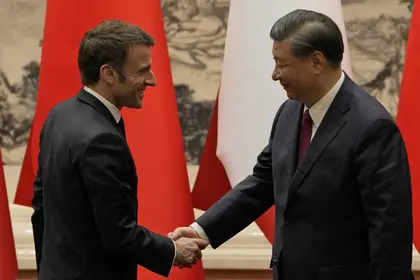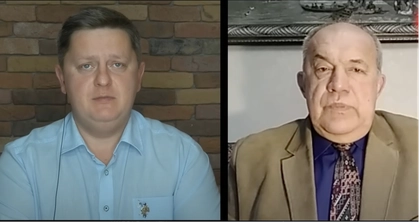Here are the some of the main takeaways from the visit of French president Emmanuel Macron to China as seen by Politico and assessed by Kyiv Post.
According to Politico, “Russia’s invasion of Ukraine provided a fraught backdrop for Macron’s landmark mission to China. In recent months there’s been growing Western pressure on Xi to distance itself from Vladimir Putin, to little avail. At the same time, Beijing has voiced dismay at what it sees as Western meddling in the status of Taiwan and unfair persecution of Chinese businesses.”
JOIN US ON TELEGRAM
Follow our coverage of the war on the @Kyivpost_official.
“On Ukraine, the statement said: ‘Both sides support all efforts to restore peace in Ukraine on the basis of international law and the purposes and principles of the United Nations Charter.’ The joint statement also said the two countries ‘call in particular women and children, victims of the conflict’, an addition that the French interpret as an indication that China condemns the deportations of Ukrainian children.
Politico notes: “there were no concrete Chinese commitments on Ukraine, whether on preparing peace talks, talking to Ukraine’s Volodymyr Zelenskyy or using China’s influence on Russia.”
“The statement called on Russia to ensure the safety of Ukraine’s nuclear facilities. China and France ‘oppose armed attacks on nuclear power plants and other peaceful nuclear facilities’ and support the International Atomic Energy Agency in ensuring ‘the safety and security of the Zaporizhzhia plant,’ the statement said.”

Updated: Europe, Not the US, Is Ukraine’s Most Important Source of Support by a Substantial Margin
They statement also urged “all parties to the conflict” to “scrupulously observe international humanitarian law.”
Politico notes that “While such calls are largely in line with China’s policy, the fact that Xi agreed to a joint statement individually with France on these points illustrated its concerns over the trajectory of Russia’s war. However, the statement did not mention Russia by name, underlining Beijing’s refusal to publicly criticize its strongest diplomatic ally in the world.”
The Chinese side also stuck to its position of calling for an immediate ceasefire in the war, which given the fact that Russia still occupies a substantial amount of Ukraine’s territory would paly into the hands of Moscow.
According to Politico, “In a later statement, the Chinese government said Xi told Macron a ceasefire was needed in Ukraine. ‘The Ukraine crisis has complex causes. Its continuation is not beneficial to any party. A ceasefire and cessation of the warfare as soon as possible would be consistent with the interests of all parties and the whole world,’ Xi told Macron, according to Xinhua. ‘We’d welcome France presenting concrete proposals on a political resolution of the crisis. China would be willing to support it, and is willing to play a constructive role.’”
So, in short, it is evident for the Kyiv Post that China’s ambivalent stance continues, with Beijing wanting to play it both ways on the surface while in actual fact backing Russia.
Nevertheless, there are a few positive points in what the Chinese agreed to in their joint statement with the French concerning Russia’s war against Ukraine and which will rankle with Moscow: peace should be restored on the basis of international law and the principles of the United Nations Charter, concern over nuclear safety (together with China's recent statements on the unacceptability of nuclear threats or the use of nuclear weapons), and the implicit condemnation of Russia’s deportations of Ukrainian children.
You can also highlight the text and press Ctrl + Enter






